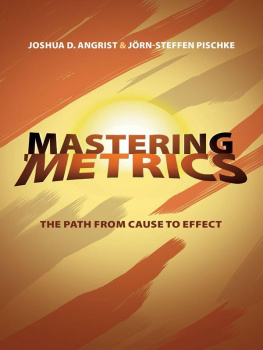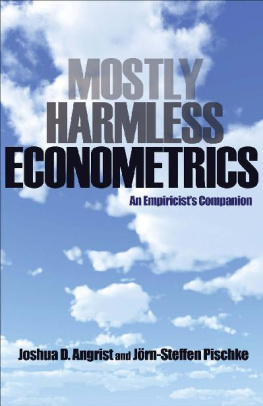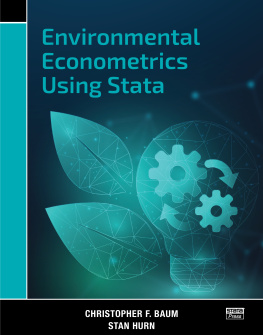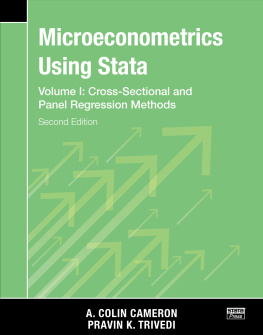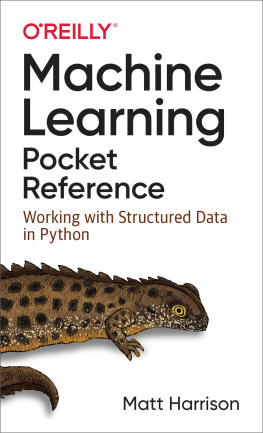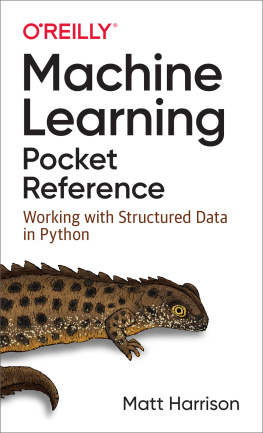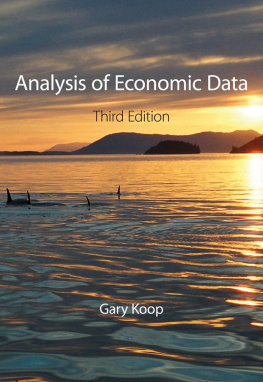Joshua D. Angrist - Mastering Metrics: The Path from Cause to Effect
Here you can read online Joshua D. Angrist - Mastering Metrics: The Path from Cause to Effect full text of the book (entire story) in english for free. Download pdf and epub, get meaning, cover and reviews about this ebook. year: 2014, publisher: Princeton University Press, genre: Romance novel. Description of the work, (preface) as well as reviews are available. Best literature library LitArk.com created for fans of good reading and offers a wide selection of genres:
Romance novel
Science fiction
Adventure
Detective
Science
History
Home and family
Prose
Art
Politics
Computer
Non-fiction
Religion
Business
Children
Humor
Choose a favorite category and find really read worthwhile books. Enjoy immersion in the world of imagination, feel the emotions of the characters or learn something new for yourself, make an fascinating discovery.
- Book:Mastering Metrics: The Path from Cause to Effect
- Author:
- Publisher:Princeton University Press
- Genre:
- Year:2014
- Rating:5 / 5
- Favourites:Add to favourites
- Your mark:
Mastering Metrics: The Path from Cause to Effect: summary, description and annotation
We offer to read an annotation, description, summary or preface (depends on what the author of the book "Mastering Metrics: The Path from Cause to Effect" wrote himself). If you haven't found the necessary information about the book — write in the comments, we will try to find it.
Applied econometrics, known to aficionados as metrics, is the original data science. Metrics encompasses the statistical methods economists use to untangle cause and effect in human affairs. Through accessible discussion and with a dose of kung fu-themed humor, Mastering Metrics presents the essential tools of econometric research and demonstrates why econometrics is exciting and useful.
The five most valuable econometric methods, or what the authors call the Furious Five--random assignment, regression, instrumental variables, regression discontinuity designs, and differences in differences--are illustrated through well-crafted real-world examples (vetted for awesomeness by Kung Fu Pandas Jade Palace). Does health insurance make you healthier? Randomized experiments provide answers. Are expensive private colleges and selective public high schools better than more pedestrian institutions? Regression analysis and a regression discontinuity design reveal the surprising truth. When private banks teeter, and depositors take their money and run, should central banks step in to save them? Differences-in-differences analysis of a Depression-era banking crisis offers a response. Could arresting O. J. Simpson have saved his ex-wifes life? Instrumental variables methods instruct law enforcement authorities in how best to respond to domestic abuse.
Wielding econometric tools with skill and confidence, Mastering Metrics uses data and statistics to illuminate the path from cause to effect.
- Shows why econometrics is important
- Explains econometric research through humorous and accessible discussion
- Outlines empirical methods central to modern econometric practice
- Works through interesting and relevant real-world examples
Joshua D. Angrist: author's other books
Who wrote Mastering Metrics: The Path from Cause to Effect? Find out the surname, the name of the author of the book and a list of all author's works by series.

